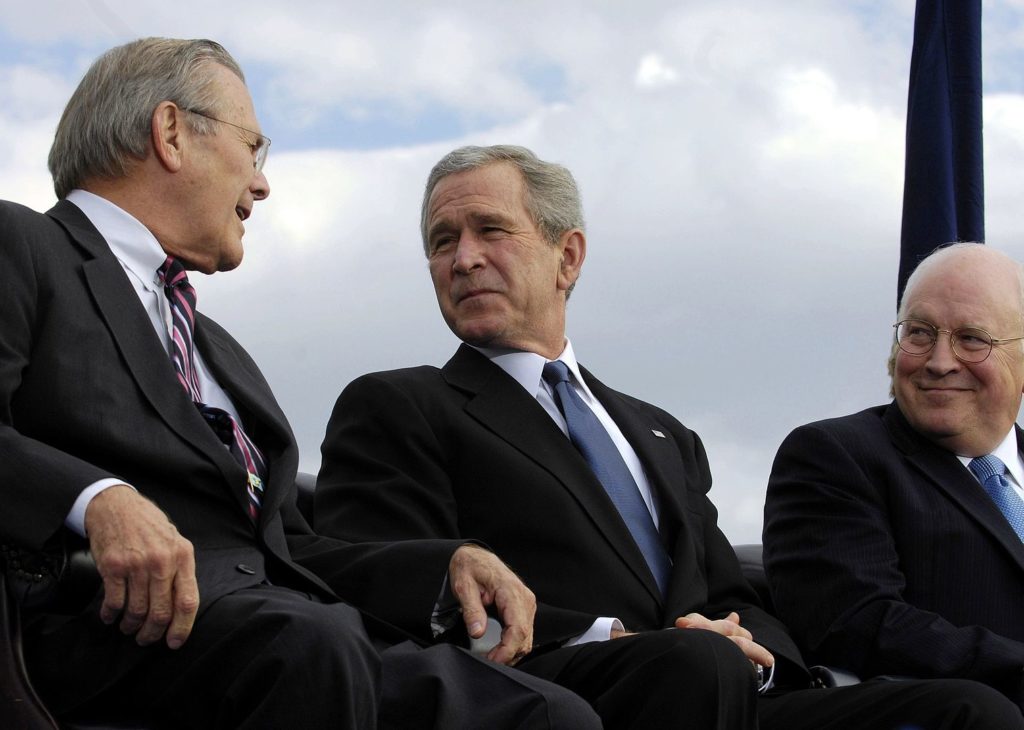Hand Iraq Over In Substance, Not Just In Name

On June 30, the Bush administration officially hands over power in Iraq to the newly minted Iraqi Interim Government. Whether this is a hand-over in substance, not just in name, will determine if July 1 marks the beginning of increased stability and independence for Iraq, or more suffering and subservience to this administration’s interests.
A meaningful handover will require that the U.S. economic occupation ends and that reconstruction begins in earnest. Unfortunately, the Bush administration appears ready to fail on both counts.
A recent “USA Today”/CNN/Gallup Poll found that the majority of Iraqis want the United States to leave immediately. To understand why, one must look at the daily lives of Iraqis under the occupation. In addition to increasingly deadly U.S. military incursions and the heinous crimes against prisoners, more than one year after the invasion, Iraqis are living in conditions of desperate human need. They face severe water and electricity shortages, near non-existent sewage service and dangerously inadequate medical care.
Water shortages are at crisis levels, leading to widespread outbreaks of cholera, diarrhea, nausea, kidney stones and even death. Baghdad’s three sewage treatment plants are inoperable, allowing the waste from 3.8 million people to flow untreated directly into the Tigris River. What doesn’t make it to the Tigris ends up flowing directly on to the streets.
Electricity is sporadic, at best, regularly fluctuating in Baghdad at three-hour intervals. Iraq’s hospitals need water, sewage and electricity to function. They also need the medicines and medical supplies that are in woefully inadequate supply.
In the face of this human tragedy is the nearly $20 billion that has been spent by the Bush administration on reconstruction. This money has gone in to the pockets of Bush’s corporate allies – principally Halliburton (approximately $16 billion) and Bechtel (approximately $3 billion). It has not gone to Iraqis. The Associated Press reports that as of May 20, 2004, fewer than 25,000 Iraqis – less than 1 percent of Iraq’s workforce – are working on the U.S.-sponsored reconstruction. While U.S. contractors fumble, Iraqi engineers and workers sit idle.
Unfortunately, this situation is by design, not coincidence.
L. Paul Bremer, U.S. Administrator of the Coalition Provisional Authority (CPA) in Iraq who was recently called the “Dictator of Iraq” by the U.N. special envoy there, has enacted several laws over the past year. These laws make it possible to favor foreign companies over Iraqi firms. Thus, Bechtel received the contract to rebuild Iraq’s water and sewer systems and many of its hospitals even though it has since admitted that it did not have adequate knowledge of those systems and is unable to meet its contractual obligations.
Iraqis know a fire sale when they see one. U.S. laws that privatize state enterprises allow foreigners to own 100 percent of Iraqi businesses, open the banking sector to foreign ownership, allow foreigners to send all of their profits home “without delay” and even place U.S. “advisors” in key positions in Iraqi ministries with five-year terms. This reeks of U.S. colonialism and puts U.S. corporate interests above Iraq’s economic recovery. From recent press reports and the Security Council resolution on Iraq currently being negotiated, it appears that these orders will stay in force after the Interim Government takes over.
These conditions and laws are not only immoral, they are also illegal. Under the Hague Regulations and Geneva Conventions, the United States is obligated to provide for the basic necessities of Iraqis while being barred from fundamentally altering any of Iraq’s laws.
George W. Bush’s administration must ensure that the groundwork is laid for real reconstruction by increasing reconstruction dollars, allowing Iraqis to provide that money directly to Iraqi companies and workers, and turning to international aid organizations in instances where Iraqis cannot perform the necessary work. Iraq must be allowed to determine its own economic and political future. Thus, the U.S. orders enacted by Bremer must not only be rescinded, but the United States must guarantee that it will not influence Iraqi policy in these areas. The U.S. economic occupation must be brought to an authentic end so that Iraqi reconstruction can truly begin.
Op Ed printed in the following newspapers:
The Daily Herald (Provo, UT) – June 24, 2004
Caroline Progress (Bowling Green, VA) – June 23, 2004
The Daily Press (St. Mary’s, PA) – June 22, 2004
Mountain Mail (Salida, CO) – June 21, 2004
Middle Town Press (Middle Town, CT) – June 19, 2004
Garden City Telegram (Garden City, KS) – no pub. date provided by distributor.
Used as basis for Editorial, “Despite Risk, Iraqis Must Control Iraq,” The Times and Democrat (Orangeburg, SC) – June 18, 2004.
